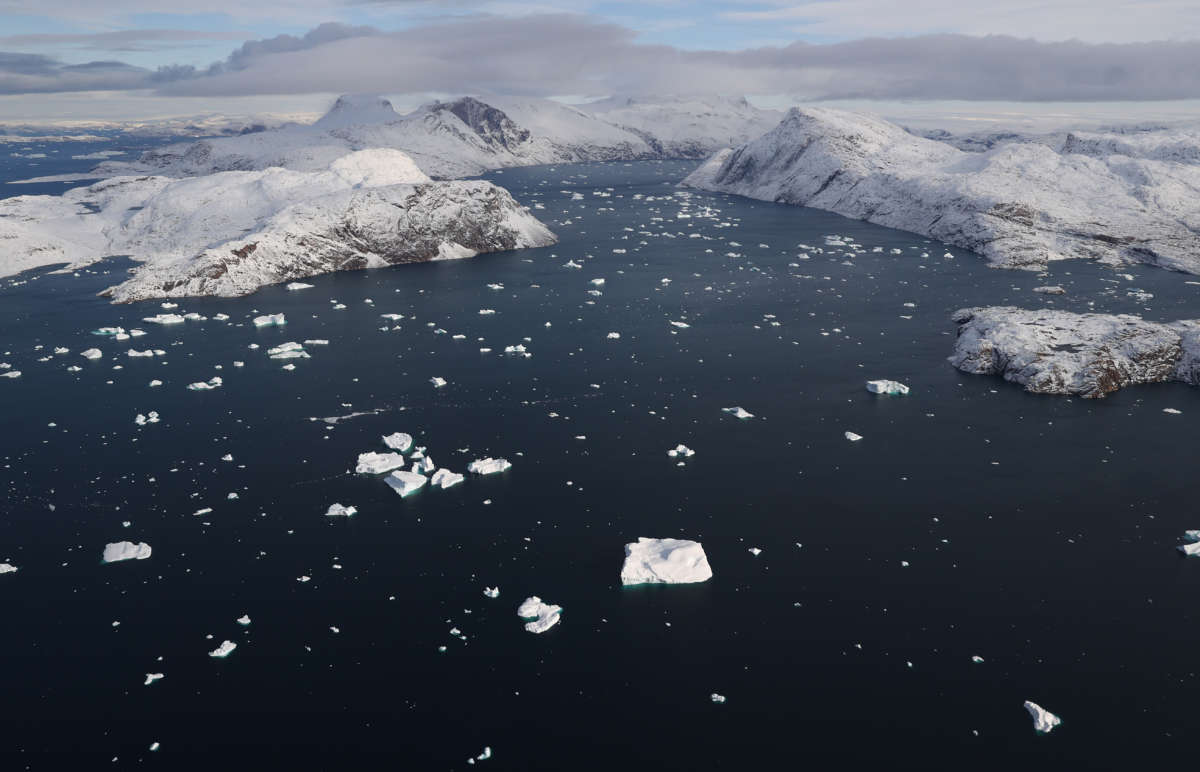Greenland’s Ice Sheet Has Lost Mass for the 25th Year in a Row
“2021 is the 25th year in a row in which Greenland’s ice sheet lost more mass during the course of the melting season than it gained during the winter.”
That’s according to the latest report from Polar Portal, a website featuring observations from Danish research institutions that monitor the Greenland Ice Sheet and the sea ice in the Arctic.
The report explains that while “the early part of the summer was cold and wet with unusually heavy and late snowfall in June, which delayed the onset of the melting season,” July saw a heatwave that “led to a considerable loss of ice.”
The Greenland Ice Sheet lost about 166 billion tonnes of ice during the 12-month period that ended in August, which is near the annual average since the mid-1980s, the report notes. From September 1986 to August 2021, it has lost about 5,500 billion tonnes, contributing 1.5 centimeters to the average global rise in sea levels of about 12 centimeters.
The ice sheet ended this season with a net surface mass balance of about 396 billion tonnes. Although that “makes the current season the 28th lowest in the 41-year time series,” or a “somewhat average year,” the report highlights “how our perspective changes in line with climate change,” explaining that in the late 1990s, “the same figure would have been regarded as a year with a very low surface mass balance in the climate picture at that time.”
The report explains various observations in detail, including unusual weather during the 2021 Arctic summer, extreme melting periods despite average temperatures, and sea ice dropping to its second-lowest level last July.
Last year was also “notable,” the report says, because “precipitation at Summit Station, which is located at the ‘top’ of the ice sheet at an altitude of 3,200 meters above sea level, was registered in the form of rain.”
When the rain was recorded in August, the U.S. National Snow and Ice Data Center noted that “there is no previous report of rainfall at this location (72.58°N 38.46°W), which reaches 3,216 meters (10,551 feet) in elevation.”
The historic event was also highlighted by Michelle McCrystall, a postdoctoral fellow at the University of Manitoba, when a team she led published Arctic rainfall research in November.
“The fact that we’re getting rainfall on the summit of Greenland right now, and that we’re maybe going to get more rainfall into the future — it kind of staggers me,” she said.
McCrystall’s team wrote that “the transition from a snow- to rain-dominated Arctic in the summer and autumn is projected to occur decades earlier and at a lower level of global warming, potentially under 1.5°C, with profound climatic, ecosystem, and socioeconomic impacts.”
Their paper came mere months after Niklas Boers of the Potsdam Institute for Climate Impact Research said that a research team he led “found evidence that the central-western part of the Greenland Ice Sheet has been destabilizing and is now close to a critical transition.”
“We’re at the brink, and every year with CO2 emissions continuing as usual exponentially increases the probability of crossing the tipping point,” Boers warned. “It might have passed [the tipping point], but it’s not clear. However, our results suggest there will be substantially enhanced melting in the near future, which is worrying.”




Geen opmerkingen:
Een reactie posten